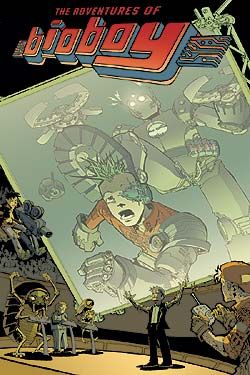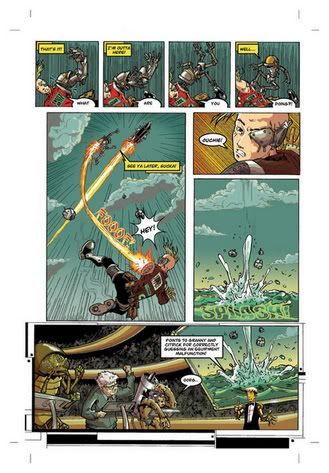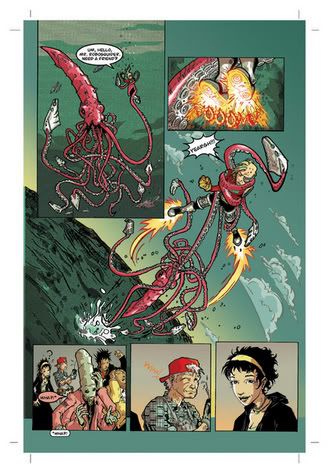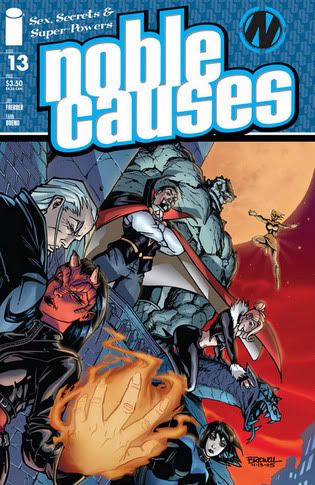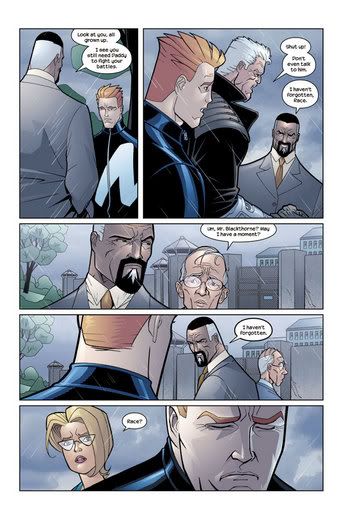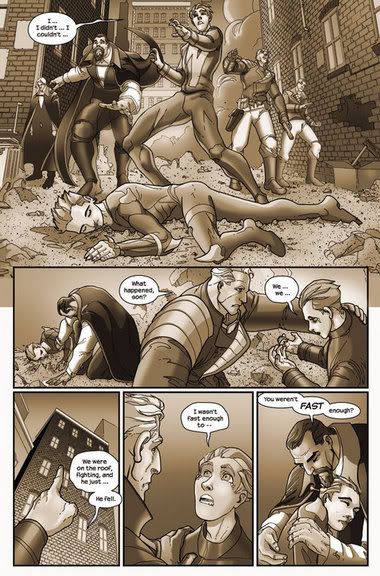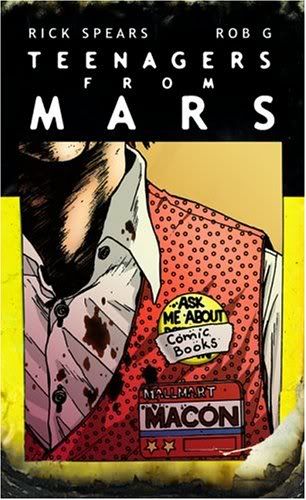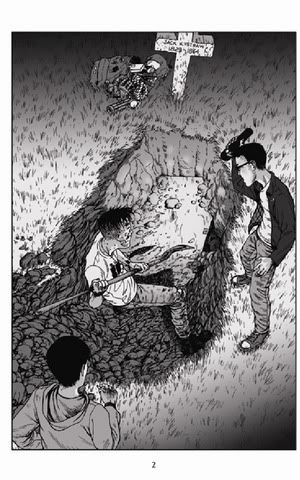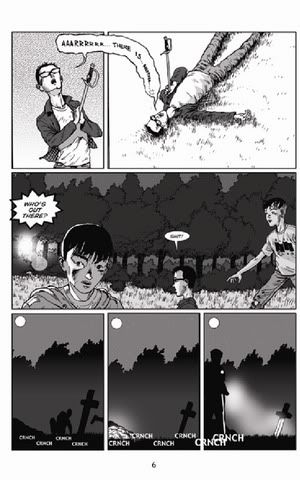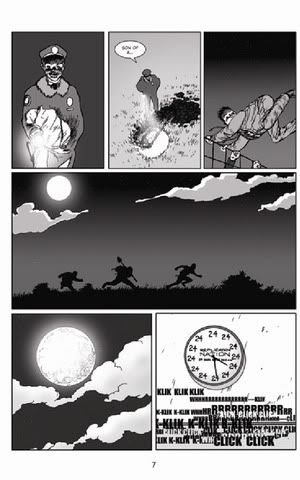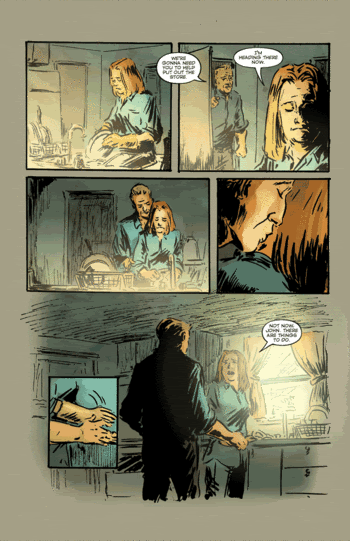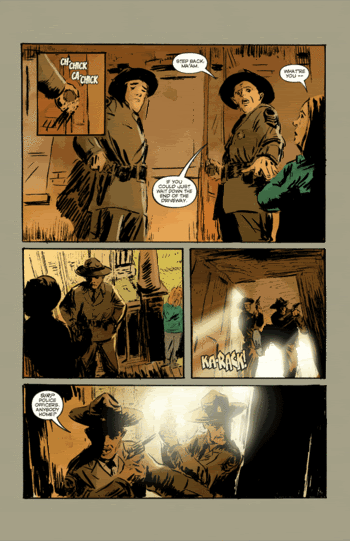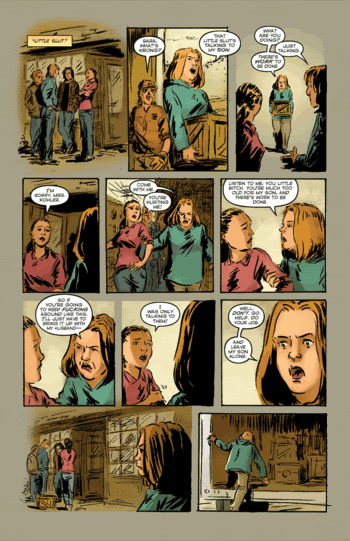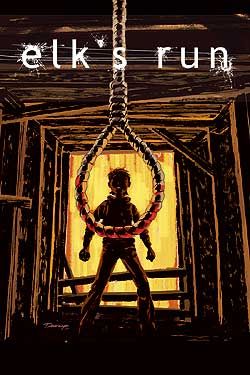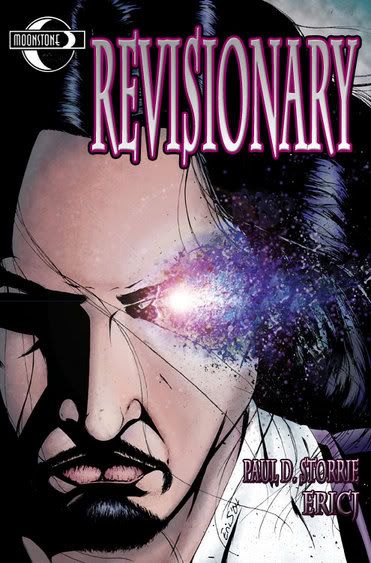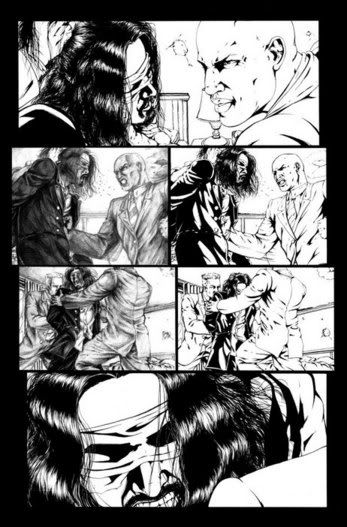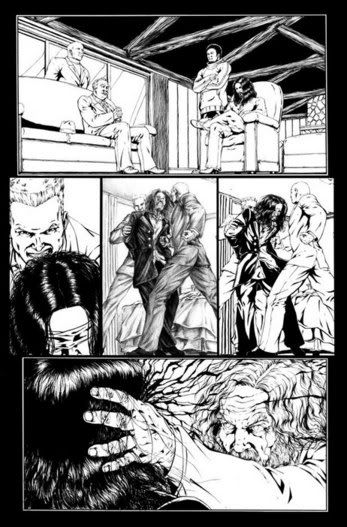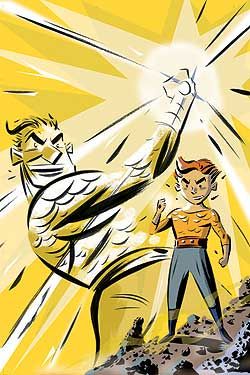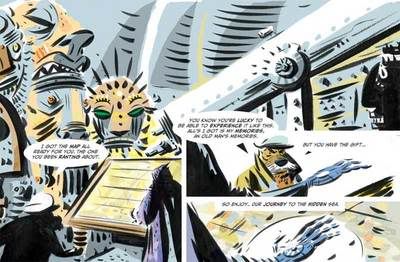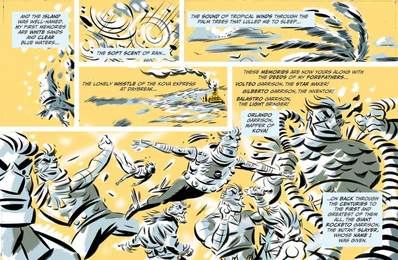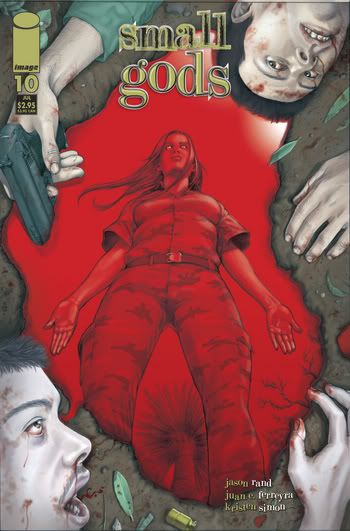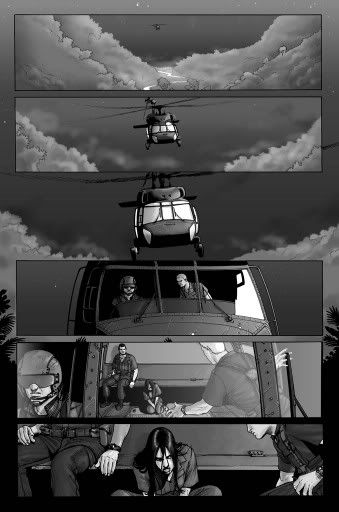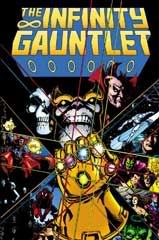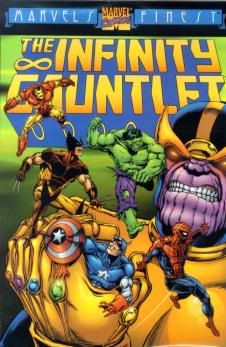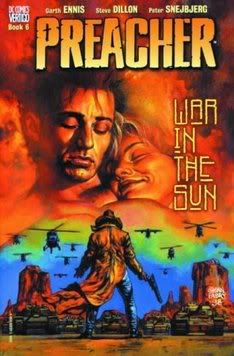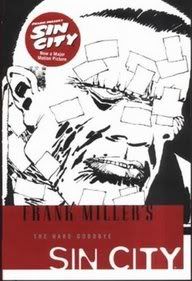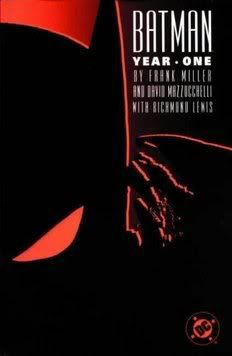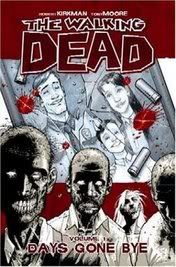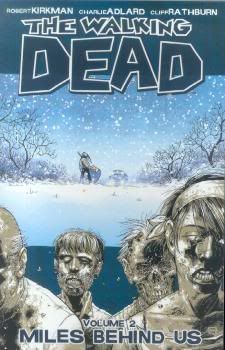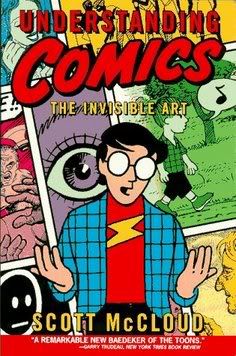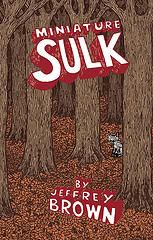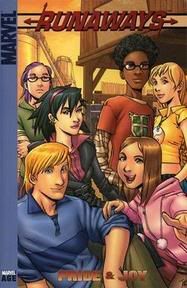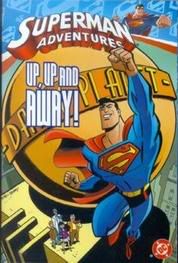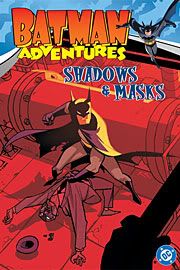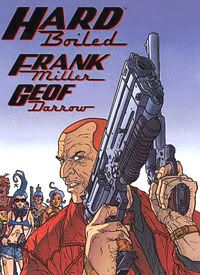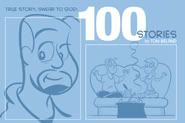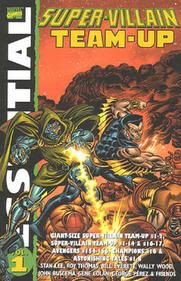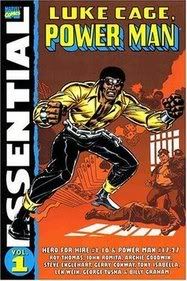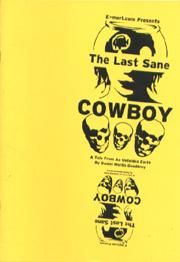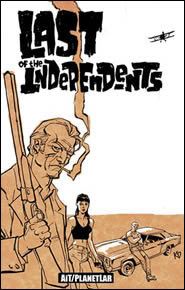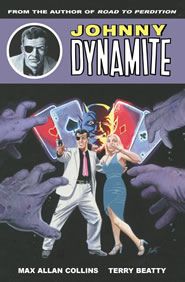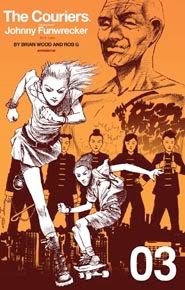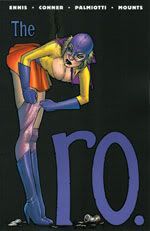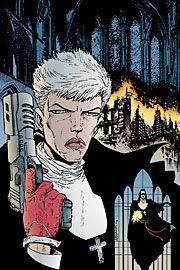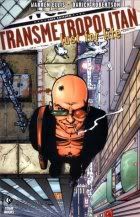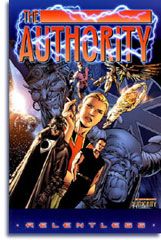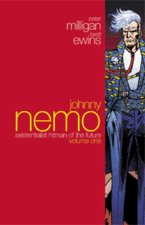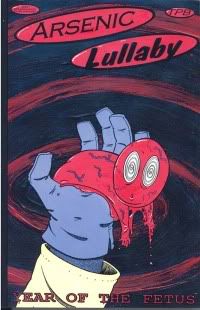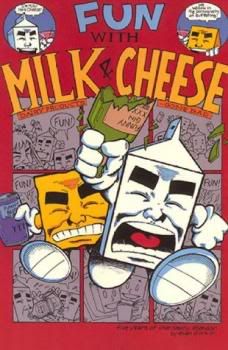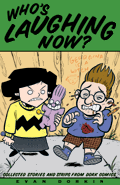Promotions Week, day three: Solicitations Day!
Talking about internet previews yesterday lead me to thinking about Diamond's Previews magazine, which leads pretty obviously to talking about Solicitations today. I'm going to define this as the title, book information, cover art, and the one- or two-paragraph blurb that gets included in the Previews magazine, and I'm gonna mention several of them because, hell, they're short!
I like to think that I'm a pretty aggressive comics activist, at least with the dollars I spend - I try to find new titles and support fresh, untested books as often as I can. There's a monthly thread that's been going on at MillarWorld for the last few months that I started just to talk about indie solicits (here's the one for November, and the main Solicitations thread for reference). Every month I comb through the HUGE text file that gets released online and sometimes I read through the physical catalogue itself, always with my eyes peeled.
But here's the thing. I might get interested in a book through the catalogue, but it doesn't make a lick of difference unless my retailer orders the book. I've got hundreds of books to choose from every month, and I will probably forget about yours in the two months between reading the solicit and the day your book should be on the racks. So an effective solicitation is going to do one of two things: it'll be so mind-blowingly exciting that I'll e-mail all the ordering details to my retailer and ask them to pre-order, or it will appeal to the retailer directly. Frankly, the second option seems smarter to me. Any retailer worth their salt (read: the sort of retailer who will even consider taking a chance on your new comic) considers it part of their job to comb through the Previews catalogue every month. Me, I do it for fun - these folks have their livelihoods invested in being a good comics shop. So they should have their customers in mind, and if you've been able to chat with your retailer enough that he or she has an idea of what you like, they might be able to find it for you. (Isotope's James Sime did a great column about how he reads the magazine here.)
So, my point is that good solicitations will target retaillers first - think about what retaillers need to hear to become interested in a book, as opposed to what readers need to hear - because for all my "fight the good fight" bluster, if it's not on the racks come Wednesday, I might just forget about it.
That said, I do want to talk about what makes solicits effective for me. Amidst all this fucking mess (Christ, that thing is like a fucking phone book), what kind of stuff really knocks me out and grabs my attention? How can you make me remember you?
I'm gonna cut out some of the obvious stuff - if you've got someone on the creative team that I already know I like, if you're doing WFH and working on a property I'm already interested in, etc. - because that really has nothing to do with the solicit itself, with the craft of making those two paragraphs and - at best - that tiny little cover art into a powerful sales tool.
First off, get to the point and do it quickly (hopefully your title has done this already, but titling books is an entire discussion on its own). Don't open with a question, don't talk about the book's philosophy, don't use your characters' names unless they're relevant and interesting. When AiT/Planet Lar's solicit for 5 Fists of Science tells me "Mark Twain decides to save the world," for example, it raises the eyebrows, while if another solicit told me that "Johan Meyer, secretly the superhero Blast Off, decides to save the world" that would be dead boring and a waste of words.
Second, appeal to something I might be worked up about. The folks at Antarctic Press did a good job with this one, opening their solicit for Science Fair #4 with the words, "Yet another fully realized story in every issue!" Right there, my eyes stopped scanning down the page and focused on the rest of the solicit, because I like my comics to do something with every issue. This is of particular concern for independently published comics - I've got no idea when the next issue will be coming out. The track record is not good. If I buy #1, will the series just disappear after that? I don't know. One way to reassure me that I'm not wasting my money by taking a chance on your book is to give every issue the legs to stand on its own. If you're putting out an OGN, you don't have to worry about this, but if you're selling me serial comics, for the love of God, study the form!
Third, try to avoid genre references and the cliches they conjure in my imagination, unless they serve a specific, fast-actin' purpose. If your solicit mentions vampires or zombies, I'm probably done reading it. If your solicit mentions cowboys or the word "Western", you might get my attention for a moment (simply because I'm a little more interested in western genre material than in zombies and vampires, which have glutted the market over the last few years), but I'll be scrutinizing the rest of the solicit with a very doubtful eye - I've read a whole lot of really shitty western comics, y'know? If you're addressing a cliche with the intent of putting a spin on it or somehow making it unique, be careful about how you phrase it. For example, Aeon's solicit for 7 Days To Fame #2 opens with "Reality Television has finally gone too far with a new hit television show--" and right there I want to stop reading. Aeon has the benefit of coming close to the beginning of the catalogue, alphabetically arranged as it is, so I still had enough resolve to keep reading. It continued, "--where people go on live television to commit suicide. Soon, people are competing to see who can kill themselves in the most unique and exciting ways." Okay, now I'm interested! I'm still not shitting my pants, because I'm worried about reading a bunch of rehashed "Reality TV is stupid" jokes, but I do know I want to see people killing themselves in crazy ways. That sounds fun.
Fourth, and this one sorta comes at the "design" stage, I suppose, have a great cover. Yeah, that's pretty obvious, and again, cover design is a whole 'nother topic. But two things need to be there for a cover to work on me in the solicits. It needs a simple, clean layout that won't get muddy or obtuse when the image is shrunk down to the size at which I will probably see it, and it needs to be drawn by the same person or people who are drawing the interiors. Unless you've got Frank Quitely or Michael Kaluta to do your covers, just do 'em yourself for Christ's sake, because nine times out of ten, when I've picked up a book because I liked the cover and it turned out someone else did the interiors? The cover has looked way fuckin' better. It never seems to go the other way around. So if your solicit says "Cover by" instead of "Cover and interiors by", I'm gonna look at that cover and think to myself, "Okay, what would art half as good as this look like?" You're shooting yourself in the foot, at least where I'm concerned.
And finally - oh, Jesus, this one almost hurts to type, it's so obvious, but I noticed it all up and down the November Previews - DON'T INCLUDE MISSPELLINGS OR POORLY CONSTRUCTED SENTENCES IN YOUR SOLICIT TEXT. If you can't write 80 succinct, intelligent words together, I'm pretty damn sure you can't write a comic worth a shit. You don't need to get flowery and Shakespearean, you don't need to use big words - if you think that's what intelligence is, you're already way off the mark - you just need to handle yourself well. A lot of the stuff I see, I wonder if the guy who wrote it even showed it to anyone else. Really, this is important stuff, and I know 80 words can often be much harder to write than 8,000, but with that kind of focus there is really no excuse for sloppiness.
Well, those are my thoughts about solicitations today. What do y'all think?
